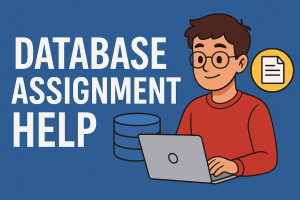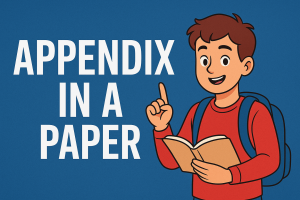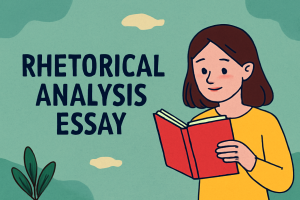When it comes to essay writing, one style that truly allows creativity to shine is the narrative essay or topics like personality assignment test. Unlike argumentative or research papers, narrative essays focus on storytelling—sharing experiences, emotions, and lessons in a way that connects with the reader. Many students search for a good narrative essay example because reading samples helps them understand structure, style, and tone. If you’ve ever thought, “Can someone write my essay online?” then this guide is for you. Here, we will explore the importance of narrative writing and share over 10 examples that can inspire and transform your own writing instantly.
What Is a Narrative Essay?
A narrative essay is a form of academic writing where you share a personal story or create a fictional one while delivering a clear message or lesson. It usually has:
- A beginning, middle, and end (just like a story).
- A strong theme or purpose (such as growth, realization, or change).
- Characters, setting, and conflict.
- Descriptive language that draws readers in.
Unlike purely descriptive or expository essays, narrative essays are built around the art of storytelling. This makes them easier to connect with because people naturally enjoy stories.
Why Are Narrative Essays Important?
Narrative essays matter for several reasons:
- They improve creativity – Writing a narrative essay allows you to use imagination and personal voice.
- They enhance communication skills – You learn how to organize thoughts into a meaningful flow.
- They are relatable – Readers connect more deeply with real or realistic stories.
- They are flexible – Narrative essays can be written on personal experiences, fictional tales, or even historical accounts.
How a Narrative Essay Example Helps You Write Better
Reading a narrative essay example can make the writing process much easier. When you see how others have structured their essays, you learn how to:This approach works not just for narrative essays but also for reflective writing tasks like a personality assignment test or self-analysis essay, where structure and storytelling matter equally.
- Start with a strong hook.
- Build tension or emotional impact.
- End with a clear takeaway.
Just as learning how to cook from recipes helps you understand how to organize your own work and Rhetorical Analysis Essay, seeing examples also aids in this process.
10+ Creative Narrative Essay Examples
Here are some inspiring examples of narrative essays and Process Analysis Essay. Each one highlights a different theme, writing style, or lesson. You can use them as models for your own assignments or practice pieces.
-
A Lesson Learned the Hard Way
This essay recounts the story of failing an important exam due to poor time management. Through honest reflection, the writer explains how failure taught them the value of discipline and planning.
Takeaway: Narrative essays work best when they share personal growth.
-
My First Day at College
A descriptive account of walking into a new environment, meeting strangers, and overcoming the fear of fitting in. This is a classic narrative essay topic because it combines emotion, personal experience, and the theme of new beginnings.
Takeaway: Always include sensory details to make your essay vivid.
-
Overcoming Stage Fright
This essay narrates the experience of performing in front of a crowd for the first time. It begins with nervousness, includes the inner conflict, and ends with the relief of success.
Takeaway: A conflict-to-resolution structure makes a story more engaging.
-
A Journey That Changed My Perspective
Here, the writer talks about a family trip that opened their eyes to cultural diversity. Travel essays often make powerful narrative essays because they combine adventure with lessons learned.
Takeaway: Include a reflection about what you gained from the experience.
-
The Day I Realized the Value of Friendship
In this essay, the writer recalls a time when a close friend provided support during a challenging moment. It shows how relationships shape who we are.
Takeaway: Highlighting emotions helps readers connect more effectively.
-
A Childhood Memory That Still Inspires Me
This narrative revisits a joyful or challenging moment from childhood. Whether it’s learning to ride a bike or spending time with grandparents, childhood essays make relatable stories.
Takeaway: Use vivid imagery to transport readers into the memory.
-
An Unexpected Hero
This essay shares a surprising story of how an ordinary person—such as a teacher, parent, or even a stranger—acted as a hero in a challenging situation.
Takeaway: Emphasize how ordinary experiences can hold extraordinary meaning.
-
The Mistake That Made Me Stronger
Everyone makes mistakes. This essay recounts an experience that was painful at the time but later became an important lesson.
Takeaway: Show how failure led to growth or change.
-
The Day I Stood Up for Myself
In this essay, the writer narrates a time they faced injustice or unfair treatment and found the courage to speak up.
Takeaway: Conflict builds strong narratives—use it wisely.
-
A Memorable Festival or Event
This essay describes a cultural or family celebration. Through detailed descriptions of sights, sounds, and emotions, the writer draws the reader into the event, making them feel part of it.
Takeaway: Descriptive writing brings essays to life.
-
Facing My Biggest Fear
Whether it’s climbing a mountain, swimming in deep water, or speaking in public, writing about facing fears makes for a strong, inspiring essay.
Takeaway: Readers love stories of courage and determination.
Tips for Writing a Strong Narrative Essay Or Personality Assignment Test
Even with great examples, you may wonder how to write your own essay effectively. Here are some simple tips:
- Start with a hook – An interesting opening sentence grabs attention.
- Use descriptive language – Make readers feel what you felt.
- Follow a clear structure: introduction, body, and conclusion.
- Show, don’t just tell – Instead of saying “I was scared,” describe your shaking hands or racing heartbeat.
- End with a lesson – Every good narrative essay has a purpose or message.
Should You Ask for Help with Narrative Essays?
Many students feel overwhelmed and wonder, “Who can write my essay online?” This is a common concern, especially when deadlines are tight. Online essay writing services can provide guidance, examples, or even complete essays to help students learn more effectively. However, it’s always best to use them for inspiration and to improve your own skills, rather than relying entirely on them.“If you ever feel stuck or unsure about structuring your story, remember that there are professionals dedicated to helping with assignment writing. They guide you through each stage, from outlining to final edits, making the process smoother and less stressful.
Conclusion
Narrative essays are one of the most creative forms of academic writing. They enable you to share personal experiences, tell stories, and reflect on the lessons learned. By exploring a narrative essay example, you can understand how to build your own unique story with a strong message.
The 10+ examples above show just how flexible and powerful this form of writing can be. Whether you’re writing about personal growth, friendship, cultural events, or overcoming fears, each story has the power to connect with readers instantly.
“If your next task involves analyzing character traits or writing about personal growth, you might even encounter a personality assignment test. Our experts can help you approach it just like a narrative essay — focusing on reflection, storytelling, and self-discovery.So next time you’re struggling, don’t just think, “Who will write my essay online?” Instead, use these examples and tips as your guide. With practice, your narrative essays can become not only a school requirement but also a meaningful form of self-expression.
Frequently Asked Questions about Narrative Essays
What is a narrative essay?
A narrative essay tells a story — usually based on personal experience — to share insight or a moral. It focuses on storytelling elements like characters, emotions, and sequence. If you’re learning academic writing, Assignment Aid can guide you with detailed explanations and help with assignments to improve narrative structure.
What is a good narrative essay example?
A strong narrative essay example reflects a meaningful life event, such as learning a lesson or overcoming a struggle. You can explore practical examples and templates on Assignment Aid, or get assistance through our myassignmenthelp resources for guidance on tone and structure.
How do I start a narrative essay effectively?
Start with a hook — a question, quote, or vivid description that pulls readers in. Then introduce your setting and characters. Assignment Aid’s writing blogs and tools can help you do my assignment with more confidence and creativity.
What are the main elements of a narrative essay?
Five key elements define a narrative essay: plot, characters, setting, conflict, and theme. Understanding these ensures your story flows smoothly and engages readers.
How do I end a narrative essay?
Conclude by reflecting on the story’s significance. A strong ending provides closure and connects back to your introduction.
What are some popular narrative essay topics?
Great narrative essay topics include moments of growth, challenges, and discoveries — like a day that changed your life or a valuable lesson learned. For more topic inspiration or guidance, explore Assignment Aid’s educational blog or request help with assignments directly.





